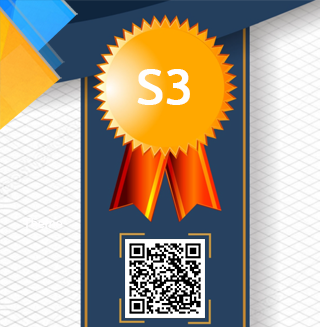Test of the Effectiveness of Dioscorea Hispida Dennust as Mosquitoescoils Effort to Aedes Aegypti Mosquito Control
Keywords:
Aedes Aegypti mosquito, Gadung Tuber (Dioscorea Hispida Denust), mosquito repellent, and concentrationAbstract
Gadung Tuber (Dioscorea Hispida Dennst) containing alkoloid and HCN (Hydrogen Cyanide) which can be used as natural poisons to kill Aedes Aegypti mosquito. This study aims to determine the test of the effectiveness of gadung tuber as anti fuelin the control efforts of aedes aegypti. It wastrue experiment, pre and posttest designs with 5 treatments and 4 times repetitions. The analysis data used the Shapiro-Wilk Normality Test, Homogenity of Variance Test, and One-way ANOVA Test. Total sample was 100 Aedes Aegypti mosquito. The results of this study indicate that the average mortality of mosquitoes at a concentration of 5 mg was 8 tails, a concentration of 10 mg was 16 tails, a concentration of 15 mg was 18 tails and a positive control (Fuel Hit) was 20 mosquito. Anova test results obtained that p-value = 0,000 (p<0,05). Then it can be concluded that from the three concentrations tested 5 mg, 10 mg, and 15 mg, the concentration can kill the Aedes Aegypti mosquito but at different levels of ability. The concentration of 15 mg was declared the most effective in killing the Aedes Aegypti mosquito. Exposure time of 15 minutes was considered the most effective in killing Aedes Aegypti mosquitoes after 4 times repetitions.
Downloads
References
Adil, W.H. 2010. Gadung, Manfaat dan Perbanyakannya secara In Vitro. [Online] http;//pustaka.litbang.deptan.go.id/publikasi/wr326106.pdf. diakses 31 Maret 2019
Anonim. 1995. Atlas Keanekaragaman Hayatidi Indonesia. KHNLH KOPHALINDO. Jakarta
Hanafiah, A.K. 2011. Rancangan Percobaan. Jakarta: PT Raja GrafindoPersada
Harahap, Putri Sahara. 2016. Efektivitas Ekstrak Umbi Gadung (Dioscorea Hispida Dents) Dalam Pengendalian Larva Nyamuk. Program Studi Kesehatan Masyarakat, STIKES Harapan Ibu Jambi, Jurnal Vol. 8 No. 1 hal 10-16 Jambi
Hariana, A. 2004. Tumbuhan Obat dan Khasiatnya, Jakarta: Penebar Swadaya
Harijono. 2008. Detoksifikasi Umbi Gadung (Discorea Hispida Dennts) Dengan Pemanasan Terbatas Dalam PengolahanTepung Gadung, Jurnal Teknologi Pertanian, Vol. 9 No. 2, Malang
Jaya, Irvan. 2017. Uji Efektivitas Serbuk Alang-Alang (Imperta Cylindrica) Sebagai Anti Nyamuk Elektrik Terhadap Nyamuk Aedes Aegypti. Fakultas Kedokteran Dan Ilmu Kesehatan, UIN Alauddin Makassar
Kardinan, A. 2003. Tanaman Pengusir dan Pembasmi Nyamuk. Jakarta. Argo Media Pustaka
Kardinan, A. 2010. Pestisida Nabati Ramuan dan Aplikasi. Jakarta: PT. Penebar Swadaya
Marina, R, &Astuti, E.P. (2012). Potensi Daun Pandan (Pandanus Amarryllifolius) dan Mangkokan (Notophanax Scutellarium) Sebagai Relepan Nyamuk Aedes Albopictus. Jurnal Vol. 4 No. 2 Hal. 85-91 Ciamis
Muchtadi. 2010. Ilmu Pengetahuan Bahan Pangan. Bandung: Alfabeta
Notoadmodjo, S. 2012. Metodelogi Penelitian Kesehatan, Jakarta: Rinenka Cipta
Pembayun, R 2007. Kiat Sukses Teknologi Pengolahan Umbi Gadung. Ardana Media. Yogyakarta
Pritchard, J.D. 2007. Hydrogen Cyanide Tocicological Overview. Health Protenction Agency.
Rimayani, A. 2017. Penggunaan Ekstrak BawangPutih (Allium sativum L.) Menjadi Lilin Terhadap Kematian Nyamuk Aedes Aegypti Tahun 2017. Skripsi. Program Studi Kesehatan Masyarakat, Sekolah Tinggi Ilmu Kesehatan (STIKes) Hang Tuah, Pekanbaru
Rukmana, R. 2001. Aneka Kripik Umbi. Kanisius. Yogyakarta
Sa’adahet al. 2011. Uji Daya Bunuh Granula Ekstrak Umbi Gadung (Discore a Hispida Dennts) Terhadap Kematian Larva Aedes Aegypti
Sigit, S.H., &Hadi, U.K. 2006. Hama Permukiman Indonesia. Bogor: Unit Kajian Pengendalian Hama Permukiman (UKPHP)
Sucipto, Cecep Dani. 2011. Vektor Penyakit Tropis. Yogyakarta: Gosyen Publishing
Downloads
Submitted
Accepted
Published
How to Cite
Issue
Section
License
Copyright (c) 2021 Jurnal Kesehatan Komunitas

This work is licensed under a Creative Commons Attribution-NonCommercial-ShareAlike 4.0 International License.
Copyright @2017. This is an open-access article distributed under the terms of the Creative Commons Attribution-NonCommercial-ShareAlike 4.0 International License (http://creativecommons.org/licenses/by-nc-sa/4.0/) which permits unrestricted non-commercial used, distribution and reproduction in any medium











































